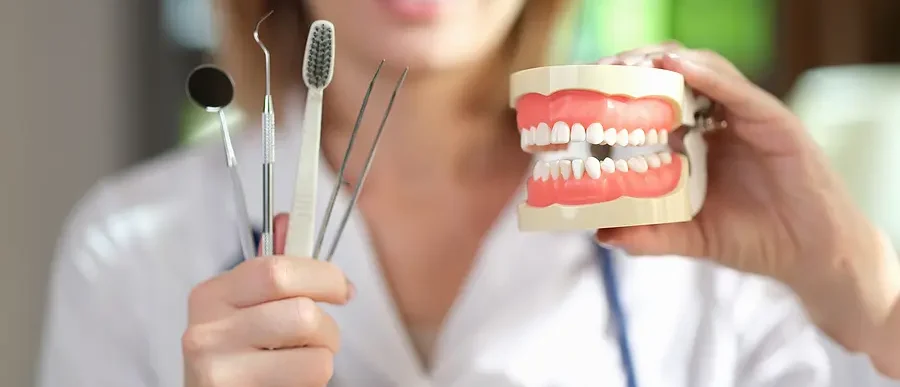Dental Waste Management: Handling Different Types of Waste

Dental patients are focused on getting in and out of the office. What they don’t realize is that a dental professional’s job doesn’t end when the patients are gone. Between a patient’s bodily fluids, the materials used in fillings, and any medications administered, there’s plenty of cleanup to do.
Dental offices produce a number of different types of waste, all of which require careful handling. Regulations around dental waste disposal are very specific and must be adhered to in order to maintain safety for patients, staff, and the community.
Here, we’ll take a deeper dive into dental waste compliance factors, along with the different types of waste that dental practices produce, and how they should be handled to remain compliant, minimize risk, and protect the environment.
Dental Waste Compliance Factors
Dental waste handling and disposal should follow all necessary federal, state, and local requirements to reduce the risk of disease transmission. The American Dental Association (ADA) recommends dental healthcare settings have policies and procedures in place for safely handling waste during segregation, storage, packaging, disposal, and transportation. It’s recommended that dental practices also have a detailed record-keeping system.
In addition to the ADA recommendations, the Occupational Safety and Health Administration (OSHA) has specific Bloodborne Pathogen Standards that dental offices must comply with. These standards specify how certain types of waste must be handled, along with steps to take if someone is exposed to potentially hazardous materials.
Types of Dental Waste
Dentistry generates regulated medical waste (RMW), along with hazardous and pharmaceutical waste. Regardless of which waste type you’re dealing with, it’s necessary that the appropriate disposal containers are available, maintained, replaced, stored, and logged for disposal.
Hazardous Waste
Waste is considered hazardous if it displays one or more of the following characteristics:
- Ignitability – flammable materials that combust easily
- Corrosivity – materials that corrode or dissolve metals, or burn skin
- Reactivity – material that may react with water, give off toxic gases or explode
- Toxicity – materials that are harmful when ingested or absorbed
A common type of hazardous waste handled in dental offices is amalgam. Dental amalgam is a liquid mercury and metal alloy mixture used to fill cavities. Even if your practice does not place amalgam fillings, you will still generate mercury waste from drilling into teeth with amalgam fillings already in place.
Dental offices must operate and maintain an amalgam separator according to the final EPA amalgam rule. Dentists who place amalgam fillings must place amalgam capsules into buckets and send them to a certified disposal company. Pulled teeth with amalgam fillings must also be placed in amalgam disposal containers.
Regulated Medical Waste
RMW is any material that has been contaminated with blood, bodily fluids, or other potentially infectious materials (OPIMs). Definitions vary by state, so be sure to research specific information for your area. RMW commonly handled in dentistry include:
- Blood and bodily fluid waste – items saturated with blood, caked with dried blood, or contaminated by bodily fluids during dental procedures
- Pathological waste – tissues, body parts, or fluids removed during dental procedures (does not include extracted teeth)
- Cultures and stocks
- Used sharps – hypodermic needles, syringes, and suture needles used in patient care
You should separate and place RMW in the appropriate container. There are specific containers for biohazardous waste and sharps. Following guidelines from your state and the Department of Transportation (DOT), label and package your waste. You should only package pathological waste for incineration.
Store your packaged waste in compliance with local guidelines and schedule pickup with a certified medical waste professional. Your provider will properly treat and dispose of the materials.
Pharmaceutical Waste
Unused or partially used medications or any item containing medications is considered pharmaceutical waste. Medications pose a risk to both humans and the environment. The EPA and your state’s health department regulate the proper disposal of pharmaceuticals. Mailback and on-site collection disposal options are available based on your needs.
Dental Waste Management With Medical Waste Pros
Whether you’re opening a new dental office or you have an established practice, Medical Waste Pros can help you manage your medical waste safely and efficiently. From biohazardous and pharmaceutical waste to sharps disposal, our nationwide network of professionals offer customized dental waste services to maintain safety and compliance for your organization.
Give us a call at (888) 755-6370 or fill out the form to be connected with certified providers who will send you free quotes within minutes.










